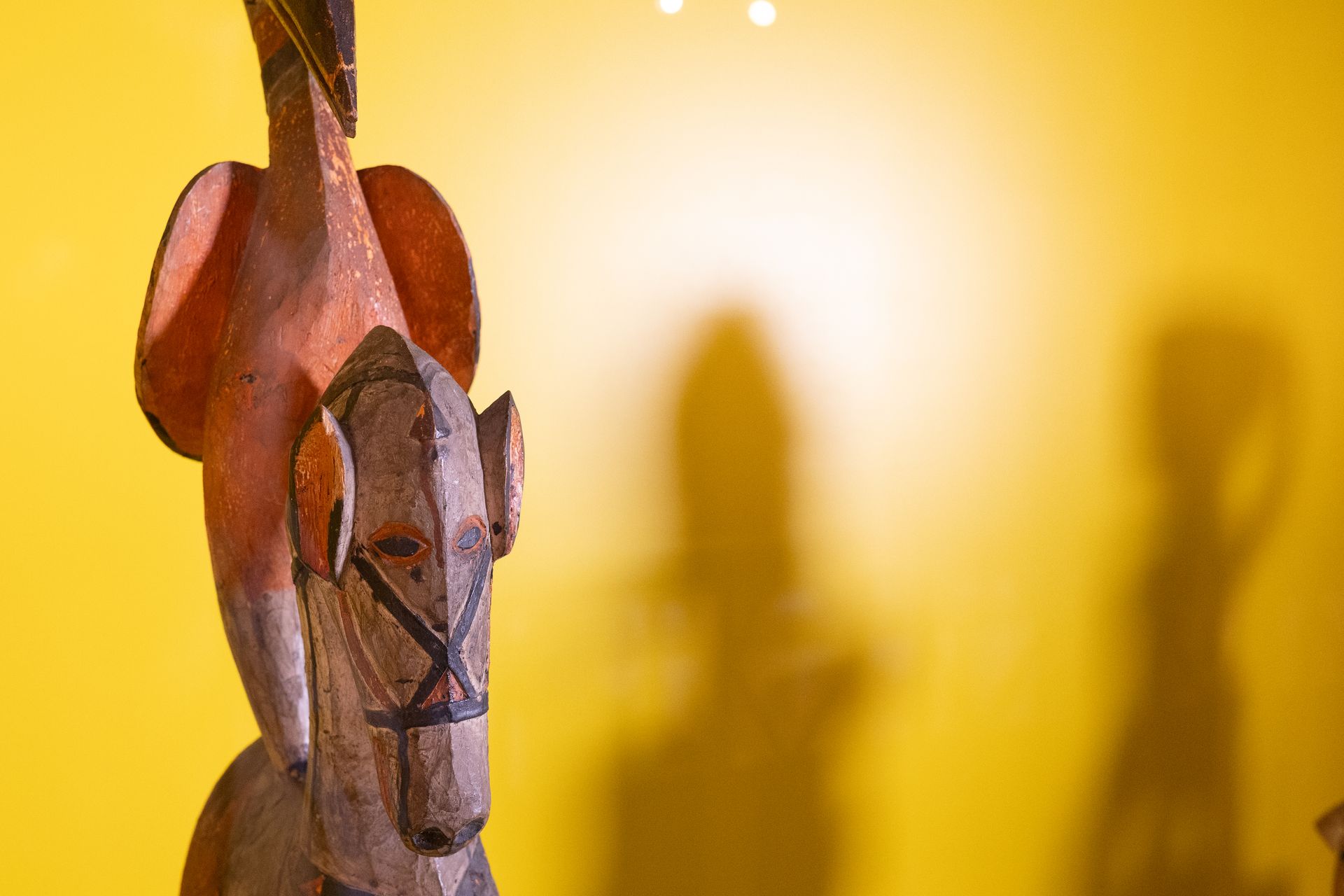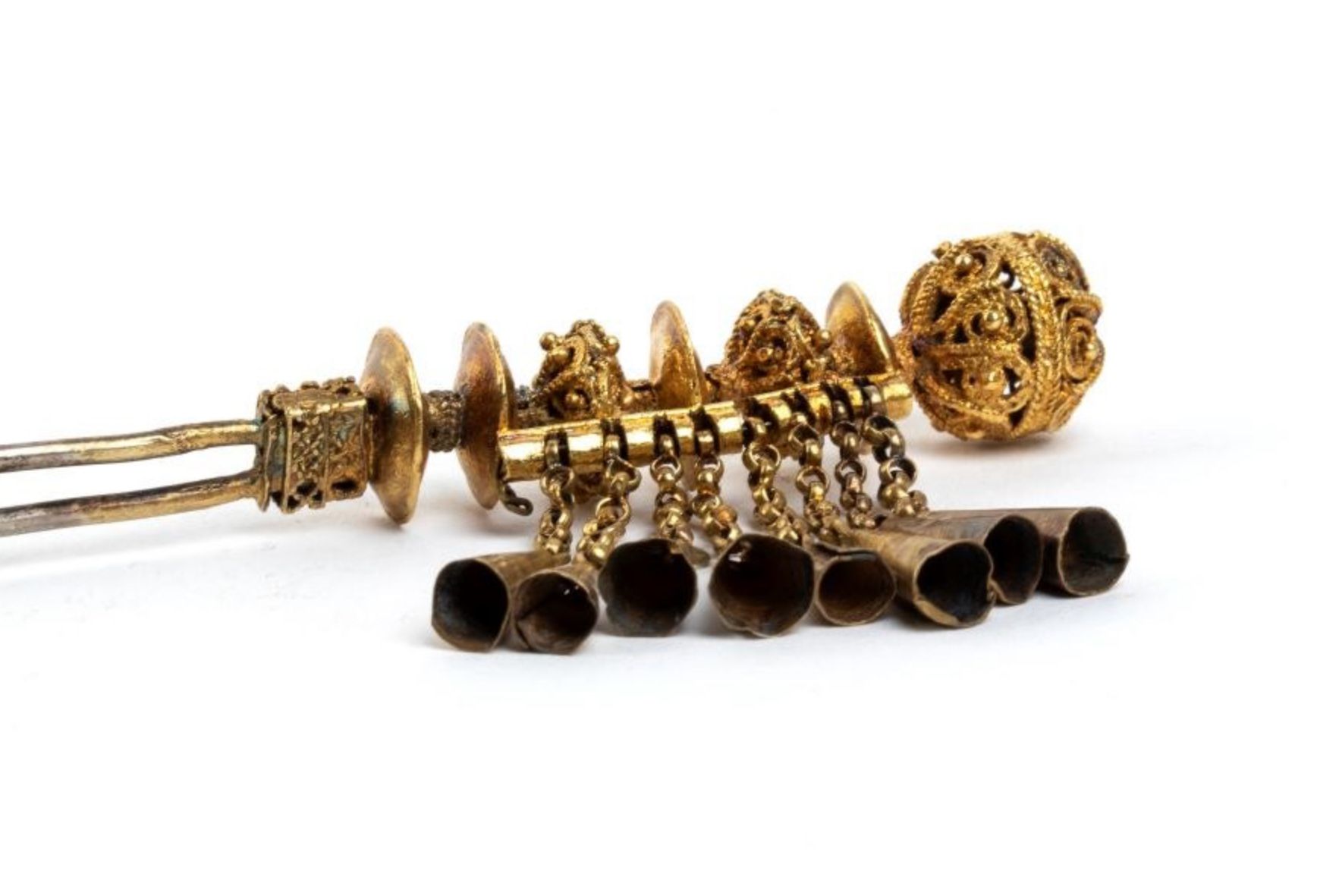Cultural Restitution
SHARE ARTICLE
Lieutenant James Cook's sailing of HMS Endeavour into a well-sheltered bay now known as Botany Bay (Kamay) in April 1770 marked the first-ever contact by British mariners with the Indigenous people of eastern Australia.
Writing about the encounters that followed, Professor Nicholas Thomas, a leading authority on Cook’s historic discoveries, describes the attitude of the Indigenous people as wanting 'absolutely nothing to do with these intruders and would have none of their gifts’. Cook himself acknowledged, ‘we could know but very little of their customs as we never were able to form any connections with them’.*
But that didn’t prevent Cook from collecting 40 Aboriginal hunting and pronged fishing spears, taken without the consent of the people living around Botany Bay. Four of these spears were presented by Lord Sandwich of the British Admiralty to Trinity College, Cambridge in 1771, which placed them ‘on deposit’ at the city’s Museum of Archaeology and Anthropology (MAA) in 1914. A wooden shield, now on exhibition at the British Museum, was collected at the same time (the 'Gweagal' Shield).
Just over a century later, an agreement has finally been reached to return these spears to the Gweagal people. Repatriation has been agreed after decades of discussions with Gweagal representatives, the broader Dharawal Nation, as well as other leading community organisations, including an unsuccessful application for repatriation made in 2016 (rejected in 2017). Throughout these discussions, all parties developed what Cambridge described as a 'respectful and robust relationship'. In May 2021 we reported on a premature announcement that Gweagal spears were returning to Australia, but Trinity College didn't receive this latest formal request for repatriation of the four spears until December 2022. The formal legal transfer of title to the La Perouse Aboriginal community was agreed by Trinity College in March 2023. Cambridge University colleges and museums then sought the approval of the UK Charity Commission to deaccession the objects on the basis of a 'morally-compelling' claim for restitution.
The Australian Institute of Aboriginal and Torres Strait Islander Studies (AIATSIS) are involved in arranging their physical return, which will take place once all parties conclude these arrangements.
“Our elders have worked for many years to see their ownership transferred to the traditional owners of Botany Bay,” said Noeleen Timbery, La Perouse Local Aboriginal Land Council chairperson. She added:
“Many of the families within the La Peruse Aboriginal community are descended from those who were present during the eight days The Endeavour was anchored in Kamay.”
Noeleen Timbery
MAA was one of the first museums in the UK to return artefacts to nations of origin, having returned artefacts to Uganda as far back as 1961. The museum can boast a clearly delineated and transparent process for considering appeals for restitution and will consider each request on a case by case basis. The museum claims to be consistently committed to cultural exchange and collaborative scholarship.
Professor Thomas, Director of MAA, has never doubted the immense significance of this particular group of spears:
“They are the first artefacts collected by any European from any part of Australia, that remain extant and documented. They reflect the beginnings of a history of misunderstanding and conflict. Their significance will be powerfully enhanced through return to Country”.
Professor Nicholas Thomas
Trinity College is also convinced that repatriation was the ‘right decision’, one that will help the College better understand and address what they describe as the complex legacy of the British empire in their collections. MAA is equally confident the new partnership it has forged with the La Perouse community will lead to further opportunities for future research.
The spears had been loaned to the National Museum of Australia for special exhibitions in 2015 and 2020. Now, following approval given by Britain's Charity Commission to transfer their legal ownership, La Perouse Aboriginal community plan to display the four spears at a new visitor centre being built at Kurnell, Botany Bay. Until this new centre is ready to receive them, the spears are likely to return once again to the National Museum in Canberra.
Of the 40 spears removed by Cook and his men, these are the only four known to have survived.
* Discoveries: The Voyages of Captain Cook by Nicholas Thomas (Penguin, 2018)
After this was written.....
The four spears were returned to the La Perouse Aboriginal Community at a ceremony held in the Wren Library at Trinity College Cambridge on 23 April 2024. The repatriation follows support from the Australian Government's AIATSIS-led Return of Cultural Heritage Program and the national Museum of Australia (NMA).
Photo: Four spears taken by James Cook from Botany Bay, April 1770
Courtesy of Trinity College, University of Cambridge
More News



